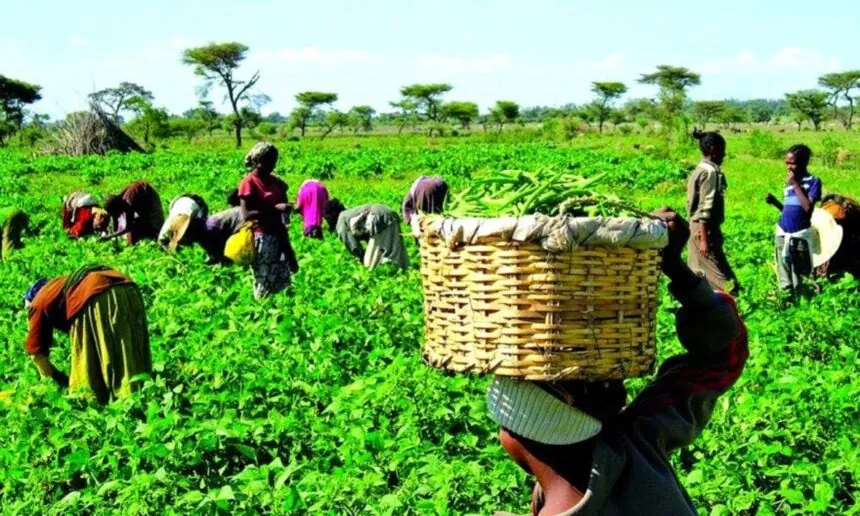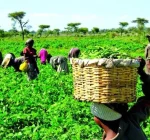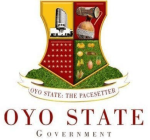Nigeria launches farmers soil health scheme to boost productivity, cut fertilizer waste
- 33 Views
- Agribusiness Africa
- October 22, 2025
- Others
In a landmark move towards achieving food security and sustainable agriculture, the Federal Government has launched the Nigerian Farmers Soil Health Scheme (NFSHS) — a transformative programme designed to restore soil fertility, reduce input costs, and boost national crop productivity.
Unveiled at the Presidential Villa, Abuja, the initiative was declared open by the Minister of State for Agriculture and Food Security, Sen. Dr. Aliyu Abdullahi Sabi, who described it as a flagship under President Bola Ahmed Tinubu’s Renewed Hope Agenda. The NFSHS aims to change how Nigerian farmers understand and manage their soils — shifting from guesswork to science-based soil testing, data-driven fertilizer use, and precision agronomy.
Through the scheme, 774 soil testing laboratories will be established across all local government areas, giving farmers easy access to soil diagnostics. Each farmer will also receive a personalized soil health card showing fertility levels, pH balance, and fertilizer recommendations for their specific crops. This data will be integrated into the Nigeria Soil Information System (NiSIS) — a digital platform for soil data management and policy decision-making.
The programme, implemented through a Public-Private Partnership (PPP) framework, brings together federal, state, and local committees alongside key development partners — GIZ, World Bank (ACReSAL Project), Bill & Melinda Gates Foundation, IITA, AGRA, and Soil Values. Since its conception in 2023, NFSHS has recorded early successes including pilot soil assessments in 11 states and the development of Nigeria’s first national Soil Health Card.
Beyond increased yields, the Minister highlighted multiple benefits: optimized fertilizer use, lower production costs, improved farmer incomes, job creation for youth and women, and stronger resilience against climate shocks. By applying soil-specific fertilizer recommendations, Nigerian farmers could double their yields — from 60 to 120 bags of rice per hectare, and 50 to 100 bags of maize.
Sen. Sabi reaffirmed that the scheme aligns with the Nairobi Declaration on Africa Fertiliser and Soil Health and will guide the formulation of a National Agricultural Soil Management Policy for Sustainability, ensuring soil conservation remains central to Nigeria’s agricultural growth agenda.
Source: Tribune Online
Expert Review for Agri-Food Stakeholders
The launch of the Nigerian Farmers Soil Health Scheme (NFSHS) marks one of Nigeria’s most pragmatic policy shifts toward data-driven agriculture. For decades, fertilizer distribution and soil management have been based on assumptions rather than evidence, leading to low productivity and high input waste. This initiative directly addresses that gap by institutionalizing soil diagnostics as the starting point for every farming decision.
- The establishment of 774 soil laboratories signifies a deliberate move toward localized agricultural intelligence — ensuring farmers receive region-specific fertilizer and crop guidance rather than generalized prescriptions.
- The creation of Nigeria’s Soil Information System (NiSIS) integrates agronomic data into a central hub, allowing policymakers, researchers, and agripreneurs to make informed, evidence-based decisions that enhance productivity and sustainability.
- The inclusion of major partners such as World Bank (ACReSAL) and IITA ensures that global expertise complements local realities, enhancing credibility, funding access, and capacity building.
- The PPP-driven model ensures that the private sector plays a crucial role in service delivery — from soil testing and data management to fertilizer blending and logistics — making the scheme financially viable and scalable.
- Most importantly, the NFSHS positions soil health as the foundation of food sovereignty. By treating the soil as a national asset rather than an overlooked input, Nigeria aligns itself with global best practices in regenerative and climate-smart agriculture.
Conclusion:
The NFSHS is more than a policy launch — it’s a blueprint for a new agricultural culture in Nigeria. If properly implemented, it could mark the end of “one-size-fits-all” fertilizer application and the beginning of a scientific revolution in crop production. For agri-food stakeholders, the scheme presents immense opportunities in agritech solutions, soil mapping services, and smart fertilizer production, all of which are essential pillars for achieving food security and environmental sustainability.











